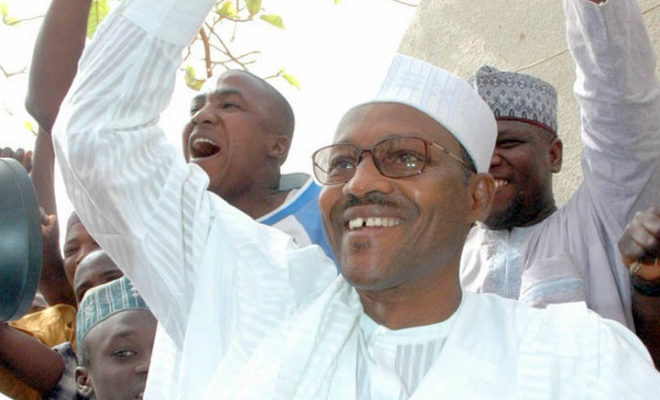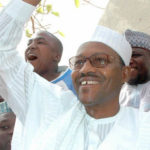President-Elect: Nigerians express expectations from incoming govt

Following the keenly contested war of ballots in the recent presidential election between the incumbent President Goodluck Ebele Jonathan — who represented the ruling People’s Democratic Party (PDP) and retired General Muhammadu Buhari of the All Progressives Congress (APC) — which ended in favour of the retired General, Nigerians have barred their minds on their expectations from the incoming administration as they say, “to whom much is given, much more is expected.”
Foremost amongst the challenges Nigerians are confronted with are economic instability, insecurity and terrorism, provision of shelter, social and infrastructural amenities, qualitative education, employment generation, and more.
Proffering solutions to these challenges and implementing his party manifesto are the task before the new President, his team and party, the All Progressives Congress.
However, as the President-elect, Muhamadu Buhari, assumes office on May 29 to tackle these challenges and take the country to another level, Nigerians expressed their expectations from the incoming administration.
Fundamentally, the role of stable electricity supply cannot be underestimated for the growth of any nation. Ironically, lack of electricity supply over the years has caused severe socio-economic imbalance among many Nigerians.
The incessant power outage in most parts of the country has not only adversely affected businesses, it has also brought about chaotic existence to many families while many have been thrown into abject poverty for lack of it to power their businesses just as series of evil acts and crimes are unleashed on homes during total black-outs.
Like every other Nigerian, Olabode Williams, a grassroots politician and trader, demands of the incoming president, Muhammadu Buhari, to prioritise power supply — as according to him stable electricity supply is primary to human and economic development.
He said: “Stable electricity supply is the fulcrum for development in every economy. I could recall in the early 80’s and 90’s when the country enjoyed constant power supply, there were many industries in the country. There were the like of Michelin, Dunlop which employed many Nigerian youths. In fact, there was a rubber manufacturing company in Ijora area of Lagos where I worked for many years, but I doubt if the company is still in existence today.
They have all relocated to Ghana and other neighbouring countries because of the failure of our government to provide constant electricity supply. “Constant electricity for domestic use is the worst for it because most homes in the country cannot boast of constant electricity supply for 24-hours even with the privatisation. The government have made us believe that the provision of stable electricity is impossible. But joyfully, with the change in government all that would be gone with the wind.
We are in a new era, the era of change, and I believe this new administration would be able to fix our power challenges and every other problem that has been militating against our growth. The All Progressives Congress in their campaign commercials was able to capture the needs of all Nigerians and I pray they have the will to implement it to the benefit of Nigerians and the party in subsequent elections.”
In its recent ranking, Transparency International, a global coalition fighting against corruption, rated political parties in Nigeria amongst top most corrupt in the world.
Of course, the issue of corruption is not limited to political parties in the country as it cuts across every strata of the society. It permeates successive administrations in the country and according to observers; corruption in government is a major cause of retrogression in our national development.
Speaking on corruption in government as it affects the masses, Omobolanle Alade, a Lagos resident opined that corruption in the country was made popular with military looting of the treasury and their involvement in politics, and was partly responsible for the poor state of the economy.
However, with the manner in which corruption has eaten deep into our national lives, Omobolanle believes change is imminent, and the change according to her is for an incorruptible leader and man of integrity to drive the country out of its present predicament.
“I think the President-elect, General Buhari, is the solution we need in the country this time around. For those of us that are privileged to witness his government when he was head of state within the period of 20 months, one cannot but conclude that he is incorruptible and upright. Therefore, I am looking forward to seeing him replicate the zero-tolerance policy of his administration because if we could fight corruption successfully and all public officers are alive to their responsibilities then there is greater assurance that our problems in the country is half-solved. So, I pray that the emergence of General Buhari as our President marks the beginning of a new era in Nigeria as I would like him to concentrate on curbing corruption and ensure that they keep their electoral promises,” said Omobolanle.
For Martin Popoola, government’s expenditure needs to be adjusted for Nigerians to benefit from the democracy.
Martin argues that over the years, the country’s recurrent expenditure is far and above capital expenditure. He lamented over the remuneration of elective officers which he described as unjustifiable. He said: “The amount of money that is expended on our public officers is far too high. Partly, it is responsible for the underdevelopment we are experiencing in the country. When recurrent expenditure is greater than capital expenditure, the result is unavailability of infrastructural amenities and decayed government structure. I therefore urge the new administration to make adjustments in politicians’ remuneration and spend more on capital projects so that there would be enough facilities for the youths to develop.”
Infrastructure-wise, Nigeria is worst hit. Obviously, bestowing good road networks to Nigerians seem to be an overwhelming task for politicians. In spite of huge yearly budgetary allocations for infrastructure development, accomplishing social amenities seem to be a daunting task for our public officers. Considering the bad shape of major and back street roads in the country — particularly roads within selected areas in Lagos State, one wonders, what good governance and democracy dividends are to our public officers by definition.
To mention but few roads that have in recent time, turned death traps and require urgent repairs are Daleko-Isolo road, Isolo-Egbe road, Iyana-Ejigbo-Ikotun road, Ishefun road, and Ikola roads in Agbado Oke-Odo LCDA.
According to the Baale of Ikola-Ilumo community, High Chief Habeeb Lawal Ayetobi, residents in Ikola-Ilumo community live with their hearts in their mouths with the bad state of roads and social amenities.
He requested for the Federal government’s intervention in the community. He stressed, “Our community is confronted with series of infrastructural challenges as the government seems to have neglected Ikola-Ilumo from developmental projects in the state. As we speak, there is no visible government’s presence in our community. Therefore, we are asking the new President to come to our aid by bringing in projects that would improve the standard of living of the community.
We are faced with problem of erosion whenever it rains. This problem, to our understanding is caused by the absence of drainage system in the community. Another is the bad state of our roads and absence of social and infrastructural amenities in the community. Apart from being narrow and not tarred, the road is also in a deplorable condition causing road accidents and loss of lives through frequent motor accidents.”
Speaking further on the absence of infrastructural amenities in Ikola community, the Baale said: “There are no government hospitals, no good road network, no schools; the only secondary school that is in the community was built by the community before the Lagos State government intervened by upgrading it. For health care facility, we have to travel to Ipaja before we could access government-owned health care facilities for medical, antenatal care and immunization for our children. I believe our demands are not out of place hence we would urge the President to address it accordingly.”
A just society, it is said, thrives where justice and equity reign supreme. But in recent time, Nigerians have had cause to complain about the country’s justice system.
In their estimation, injustice and nepotism seem to gain prominence over fairness as the case with Odusanya Johnson — who laments over the inability of the Nigerian police to unveil the killers of his dear son.
For Odusanya, revamping Nigeria’s ailing justice system is what he demands from the incoming administration.
With the memories of the death of his son, Odusanya Johnson’s expectations do not fall short of institutionalising social justice and equity as he believes with social justice there would be peace in the land.
‘‘It seems to me there are two kinds of justice system operating in the country which gives preferential treatment to a particular group of individuals over others. With the death of my son, I realised that our justice system in the country needs overhauling.
It is not as active as it ought to be, and that is why, it is incapable of protecting the citizenry against assault. So, I would want the new president to concentrate on solidifying our justice system and ensure that it is free from corruption and manipulation’’.
For the union of land owners in Epe kingdom, injustice to them is government acquisition of their land against their will. To them, the reclamation of their lands from Lagos State is a priority. This kingdom according to its president, Alhaji Shittu Muftau, wants the Buhari-Osinbajo administration to legislate against government’s illegal acquisition of lands in the state.
They want legislation that would empower them to exercise control over their lands.
“All our lands have been acquired by the Lagos State government. Apart from the fact that they are impoverishing us, they are also setting us back into the stone-age. Therefore, we are appealing to the government to give back our lands to us and open an avenue for negotiation and mode of purchase with individual families that is willing to sell its portion.
“We are tired of government policy which makes the rich richer and the poor poorer. We want to remain on our lands. We want President Buhari to legislate over illegal acquisition of land by the government. The new regime should concentrate on addressing injustice that have been meted to Nigerians,’’ Alhaji Shittu demanded.

 Top Four Tips for Getting Your Assignments Done on Time at University
Top Four Tips for Getting Your Assignments Done on Time at University  Adaobi Nwaubani: Humorous writer, journalist
Adaobi Nwaubani: Humorous writer, journalist  President-Elect: Nigerians express expectations from incoming govt
President-Elect: Nigerians express expectations from incoming govt 